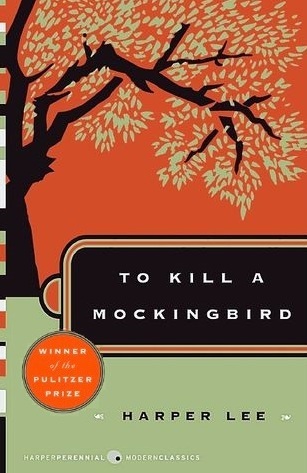Title: To Kill a Mockingbird
Author: Harper Lee
Publisher: J. B. Lippincott & Co.
Genre: Bildungsroman, Historical Fiction
First Publication: 1960
Language: English
Major Characters: Scout Finch, Atticus Finch, Jem Finch, Arthur Radley, Mayella Ewell, Aunt Alexandra, Bob Ewell, Calpurnia (housekeeper), Tom Robinson, Miss Maudie Atkinson, Judge John Taylor, Dill Harris, Heck Tate, Stephanie Crawford
Setting Place: The fictional town of Maycomb, Alabama during the Great Depression
Theme: Community and Convention, Female Sexuality and Friendship, Faith, Suffering, and God’s Will, Science and Superstition, Justice and Judgment
Narrator: First person
Book Summary: To Kill a Mockingbird by Harper Lee
The unforgettable novel of a childhood in a sleepy Southern town and the crisis of conscience that rocked it, To Kill A Mockingbird became both an instant bestseller and a critical success when it was first published in 1960. It went on to win the Pulitzer Prize in 1961 and was later made into an Academy Award-winning film, also a classic.
Compassionate, dramatic, and deeply moving, To Kill A Mockingbird by Harper Lee takes readers to the roots of human behavior – to innocence and experience, kindness and cruelty, love and hatred, humor and pathos.
Now with over 18 million copies in print and translated into forty languages, this regional story by a young Alabama woman claims universal appeal. Harper Lee always considered her book to be a simple love story. Today it is regarded as a masterpiece of American literature.

Book Review: To Kill a Mockingbird by Harper Lee
With endless books and infinitely more to be written in the future, it is rare occasion that I take the time to reread a novel. And this time it’s To Kill a Mockingbird by Harper Lee, a timeless classic. The first time I read this I was much, much younger and I remember loving it then. Over fifteen years later, it still held so much for me – wonderful language and characters that I never forgot about, profound themes explored, and relevancy even so many years later. Harper Lee is one of the best female authors.
The story in To Kill a Mockingbird by Harper Lee is told from the point of view of Scout (Jean-Louise Finch), a six year old girl, through various events that happen in the town of Maycomb and in particular, the court case of Tom Robinson as her father Atticus Finch acts as Tom’s defence lawyer. Tom, a black man who has been accused of raping a young white woman, has to endure multiple racial attacks. Atticus, widely described as the “most enduring fictional image of racial heroism”, describes the events to Scout so that she sees that all people should be treated equally.
“You never really understand a person until you consider things from his point of view… Until you climb inside of his skin and walk around in it.”
The narrator of this story is young tomboy Jean Louise (Scout), and her observations of Maycomb and people’s behavior are simple, honest, and visually very rich. I had no problem picturing Scout, Jem and Dill’s childish efforts to draw Boo Radley out of his house, or Calpurnia taking the kids to a colored church.
But when, after 128 pages, the court case begins and the plot really becomes intriguing, you immediately feel a rise in tension and excitement. Here Jem and Atticus become the main characters instead of Scout because they are more aware of the risks and importance of the case, although Scout’s moment with the mob was heartwrenchingly beautiful in it’s innocence.
“People generally see what they look for, and hear what they listen for.”
The last part of the book was less tense but never dull: it was important to show the aftermath and the effects of the case on different class – and races – of people to convey the impact of Atticus’ actions. Because back in 1935 and even now, in our current political situation, standing up for what’s right while the majority is against you, is an incredible brave and difficult thing to do.
One thing especially about this story that stood out to me, are the interesting gender roles in this book. We have Atticus who isn’t only presented as an amazing father but also as a great male character, because he’s patient, courteous, clever…but not traditionally masculine. In contrast with Bob Ewell, the main antagonist, Atticus isn’t physically strong, doesn’t use strong language, and hates violence (example: he keeps his shooting skills a secret from his children).
“The one thing that doesn’t abide by majority rule is a person’s conscience.”
His sister, aunt Alexandra, is a very traditional female figure who wants Scout to behave more ‘lady like’, and because Scout doesn’t like her (at first), we as readers dislike her too. Acting as her opposites are Calpurnia and Miss Maudie, who neither show traditional feminine characteristics like politeness and charm, but both are presented as good and right.
To Kill a Mockingbird by Harper Lee is a well-loved book for many good reasons, but I was very surprised by its diverse male and female characters, who make this story even richer than it already is.




